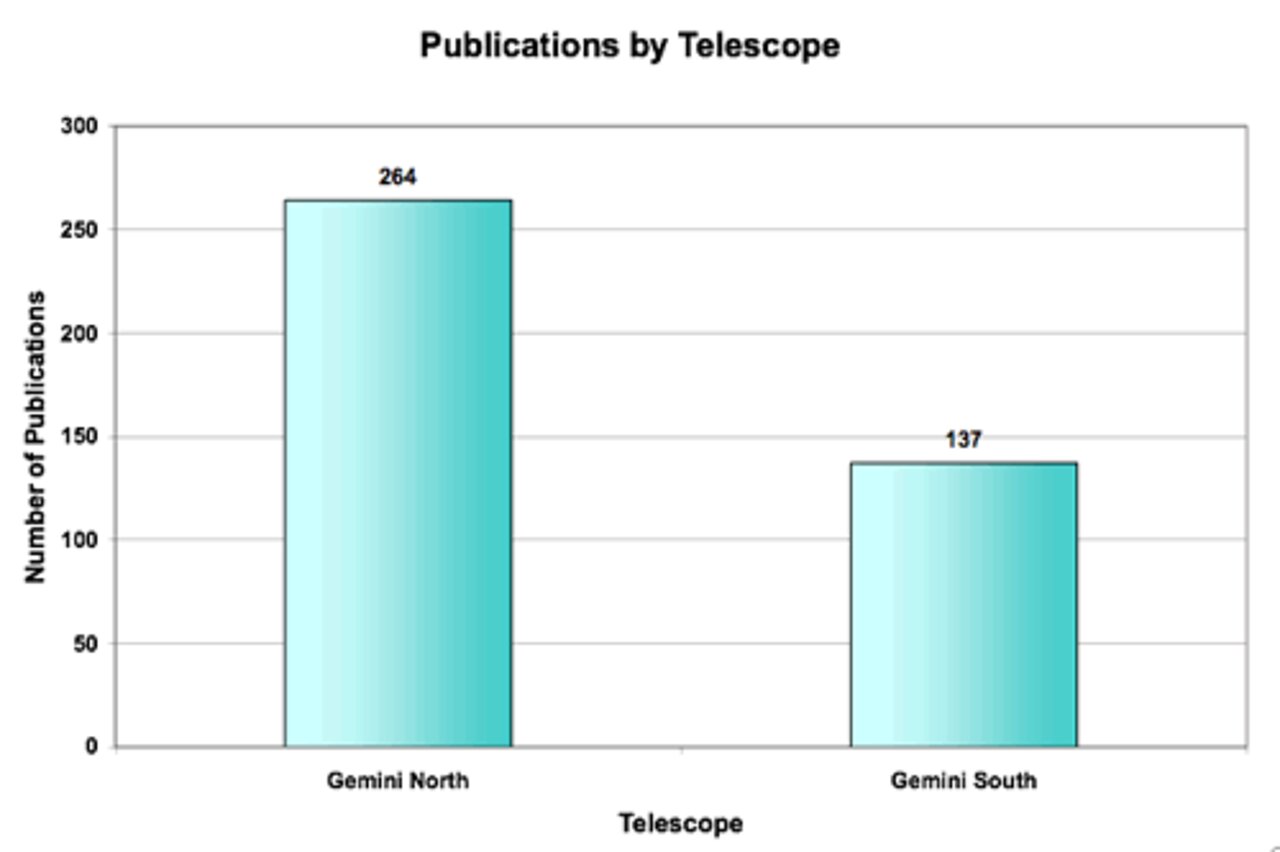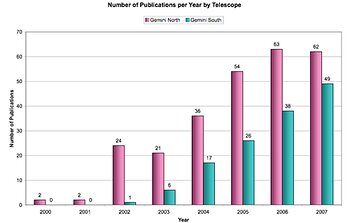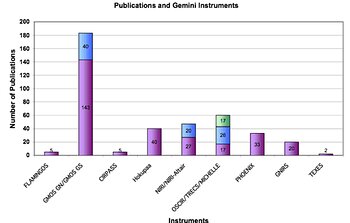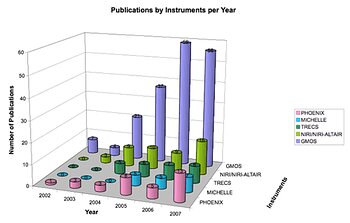The 400th Gemini Paper
September 27, 2007

In early September 2007, the 400th Gemini paper was accepted for publication in one of the main refereed astronomical journals. The last time we reported on the Gemini papers statistics was on 4 January 2006, when the 200th Gemini paper appeared.
The 400th paper which is titled “SNLS Spectroscopy: Testing for Evolution in Type Ia Supernovae,” 2008, A&A, by T. J. Bronder and 21 co-authors of the Supernova Legacy Survey (SNLS) team. The author team consists of researchers from the United Kingdom, Canada, France, Portugal, and the United States. The article reports on the supernova candidate spectra observed with the Gemini telescopes during the first 34 months of the SNLS, 87 of which have been identified as SNe Ia at a median redshift of z = 0.720. The study shows that there exists a sample at high red fist with properties similar to nearby SNe. Correlations between Type Ia SNE properties and host galaxy morphology are also found to be similar at low and high z.
Of course this particular paper, like any of the 399 before, only provides a glimpse at the diversity of research performed at Gemini Observatory since the first wave of papers started to appear in 2002. A scan of our publications archive reveals an extraordinary range of research and discoveries that is continually expanding and diversifying, creating a significant legacy for generations of scientists and the public at large. Many of these findings have also been reported and highlighted on the Gemini website, and an archive is available here.
In the figures and table associated with this text, we show various publication trends as a function of telescope, instrument and calendar year. In Table 1, we present a comparison of the number of papers between Gemini instruments using a simple “productivity index” of the number of hours required on average to produce a paper. The lower the number the more “productive” an instrument has been.
We will present a more detailed analysis of the paper statistics and impact (as measured by citations) when the 500th paper appears, which we predict will occur sometimes in May or June 2008.
| Instruments | # papers | Hours per paper* |
|---|---|---|
| T-ReCS (mid IR imager-spectrograph) | 26 | 17 |
| MICHELLE (mid IR imager-spectrograph) | 17 | 18 |
| OSCIR (mid IR imager) | 17 | 21 |
| Hokupa’a-36 (adaptive optics imager) | 40 | 21 |
| GMOS-N (optical MO/IFU spectrograph) | 143 | 22 |
| GNIRS (near IR spectrograph) | 20 | 27 |
| NIRI (near IR imager/spectro)/ALTAIR | 27+21 | 33 |
| GMOS-S (optical MO/IFU spectrograph) | 40 | 38 |
| PHOENIX (near IR HiRes spectro) | 33 | 40 |
Table 1. Instruments: number of paper and “output index” in terms of hours of telescope time in hours produce one paper. Paper count is as of October 1st, 2007, and hours charged as of end of 2005B.
Notes
- Gemini maintains an up-to-date database of papers based wholly or in part on Gemini data that appear in the main refereed astronomical research journals. These journals consist of: The Astrophysical Journal, The Astronomical Journal, Astronomy & Astrophysics, Monthly Notices of the Royal Astronomical Society, Publications of the Astronomical Society of the Pacific, Icarus, Science and Nature. In a few exceptional and well-assessed case, we also count papers from “secondary” journals.
- Gemini’s qualifying criterion is the same as that used by Hubble Space Telescope and European Southern Observatory. To qualify, papers based on their output, must employ in an original way an image, spectrum or data set produced by Gemini to derive new scientific results. No attempt is made to fractionate papers per telescope used in the case of papers based on the use of two or more other facilities. Hence, the same paper may be counted several times, for example by Gemini, Keck and Subaru, if it includes data from any of these telescopes.



